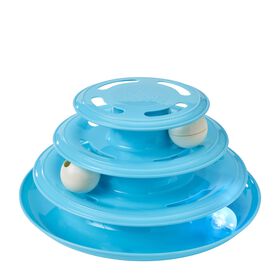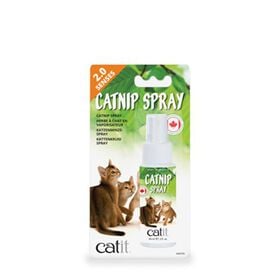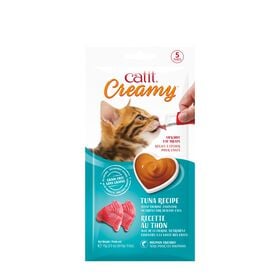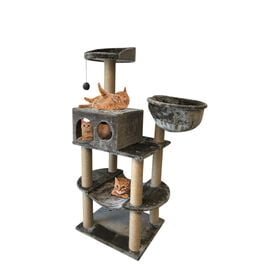You might not think that this seemingly simple question deserves an entire article, but think again. Although the action in itself is always the same, there are a number of reasons why cats lick themselves, other cats, and human hair and skin.
Cleanliness
The most obvious reason for this behaviour is to keep clean. Every cat has its own grooming preferences, frequency and routine. Some cats opt for a complete cleaning, while others spread the sessions out over an entire day. Some cats dedicate a great deal of time to grooming, while others place little importance on it. This doesn’t mean that they are less clean than other cats, but possibly more effective at grooming. Or, it may just not be their favourite activity. On average, a cat spends a third of its waking hours hunting (playing), a third eating and a third grooming itself. Grooming is therefore part of a cat’s overall routine. It’s possible for a cat to lick itself too much, to the point of even pulling out its hair. Given that there is usually an underlying medical issue in such cases, it’s important to consult a veterinarian. Don’t wait for the situation to get worse, since your cat may be suffering.
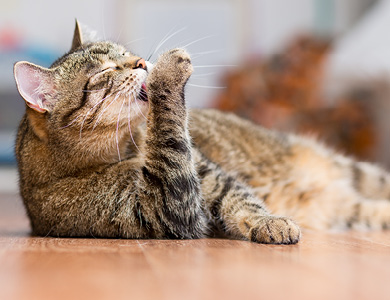 If you watch your cat groom itself, you will notice that it does so very methodically, going from one spot to another and covering a specific surface, without missing a single hair. That’s why cats don’t need to be bathed, not even once a year, which some websites or social media sites recommend. Only medical reasons prescribed by a veterinarian and accidents in which a cat’s fur is covered or coated with a product or liquid (e.g., skunk spray, sauce or paint) are compelling arguments for giving a cat a bath. If you’re concerned about the toxicity of the spilled product, keep the cat from grooming itself until you manage to reach a veterinary clinic or the animal poison control centre. Avoid seeking advice from social media groups, since the information provided is generally false and can put your pet’s life at risk.
If you watch your cat groom itself, you will notice that it does so very methodically, going from one spot to another and covering a specific surface, without missing a single hair. That’s why cats don’t need to be bathed, not even once a year, which some websites or social media sites recommend. Only medical reasons prescribed by a veterinarian and accidents in which a cat’s fur is covered or coated with a product or liquid (e.g., skunk spray, sauce or paint) are compelling arguments for giving a cat a bath. If you’re concerned about the toxicity of the spilled product, keep the cat from grooming itself until you manage to reach a veterinary clinic or the animal poison control centre. Avoid seeking advice from social media groups, since the information provided is generally false and can put your pet’s life at risk.
If you take a close-up look at a cat’s tongue, you will notice that it resembles the plastic side of a Velcro strip, with tiny hooks pointing towards the inside of the mouth. The tongue is, in fact, a brush that is perfectly suited for grooming. That is also why cats swallow a great deal of dead hair, which, over time, can cause hair balls. See your veterinarian if your cat brings up too many hair balls.
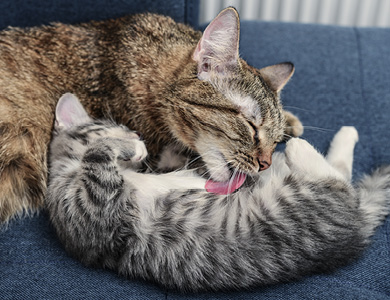
Family scent
A mother cat will completely clean each of her kittens immediately after birth, and rather intensively for the first three weeks. In doing so, she activates the kittens’ blood circulation and transfers the family scent to her litter. This scent will allow all members to identify with a given family as long as the cats remain together. As soon as they are separated for a few weeks, each one will develop its own scent and forget the family scent. This explains why brothers and sisters are no longer able to recognize one another when attempts are made to reunite them after they’ve been apart for a while.
But what about two cats who lick each other? This is often seen as a way of exchanging scents and pheromones, which means that they consider themselves to be part of the same family. Everything surrounding cat pheromones is currently being called into question from a scientific standpoint, and their role is often misunderstood. Apparently, pheromones are not used to mark territory or give cats a sense of belonging. However, there is a consensus among the scientific community that cats do not deposit their pheromones voluntarily and consciously. Even if the actual function of these fatty acids was known, it would be impossible to conclude with any certainty that cats lick themselves to share a type of family scent.
However, since the body language of cats that lick each other shows no signs of stress, it is possible to conclude that they enjoy the experience as much as being petted. This activity between cats is referred to as allogrooming or social grooming.
A cat can also lick another cat to aggravate it or chase it away from a specific spot or resource. If you notice that only one cat is licking another, that the licking is gentle or that the other cat is showing signs of impatience or stress, you’re probably witnessing a minor dispute (so no need to intervene). Instead of starting a quarrel or fight, a cat can use this method to frustrate another cat to the point where it leaves. How can you get angry when you’re being chased away with affection?
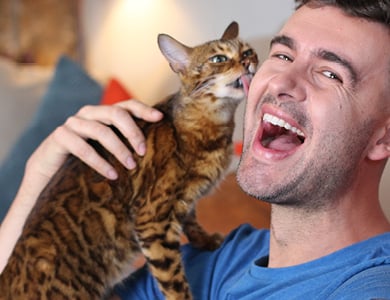
Humans who taste good
Why do cats lick humans? Once again, there are a number of reasons. Most owners wonder why cats lick their hair. A lot of cats really like licking hair, especially women’s hair. It’s rare to see a cat licking a man’s hair. That should already give you some indication about why cats adopt this behaviour. Most shampoos and conditioners for women contain natural or chemical ingredients such as jojoba, eucalyptus, lavender, olives, and other similar fruits and plants. These products are particularly pleasing to cats. The scents of specific products used in hair perms can also stimulate cats almost as much as catnip.
For about the same reasons related to creams and soaps, cats may enjoy licking human skin for the taste and smell. If your cat really enjoys licking your skin, make sure that your skincare products do not contain any toxic or allergenic substances.
For the same above-mentioned reasons, disregard any fallacies about how cats lick you to mark their territory and indicate that you belong to them. Some cats may realize that licking you is the best way to get your attention. Lastly, some cats lick other individuals just for their own pleasure. Why not? It’s an activity like any other.
My cat likes me
If your cat licks you, you now know that it may be because of your skincare products, to get your attention or simply because the cat enjoys it. But is it possible that your cat licks you because it likes you? This question is tougher to answer than you might think because our definition of love is very different than it is for a cat. You can’t conclude that your cat licks you because it likes you or even has a strong attachment to you, but you can say with some degree of certainty that, if your cat licks you, it probably likes being around you, unless of course it just wants to take over your spot.



